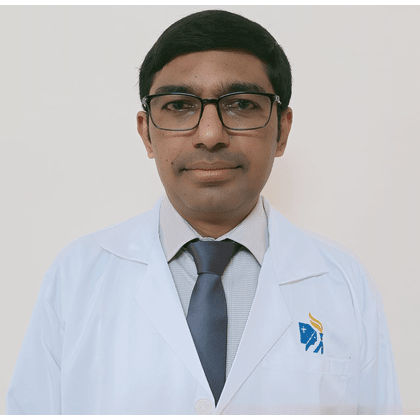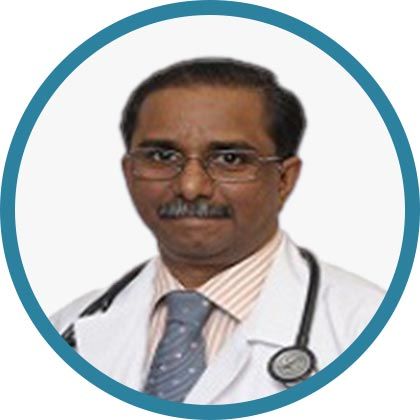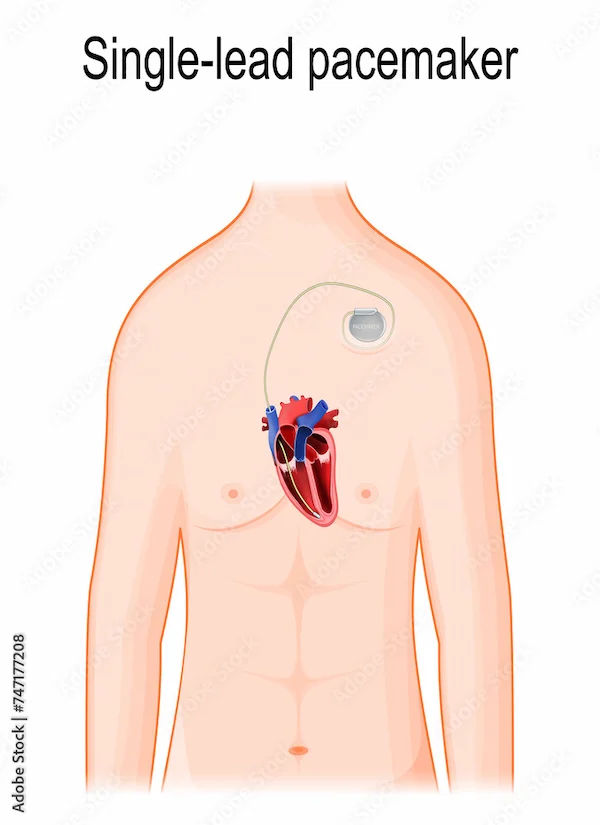Congestive Heart Disease: Types, Causes And Management
Learn about congestive heart disease, its types, causes, and effective management strategies. Explore symptoms, treatments, and lifestyle changes to improve heart health and enhance quality of life.

Written by Dr Sonia Bhatt
Last updated on 3rd Jul, 2025
Congestive heart disease or congestive heart failure is a chronic disease where the muscles of the heart are unable to pump blood sufficiently around the body. This can lead to the accumulation of fluids in the lungs, abdomen or other tissues, a condition, which drastically interferes with one’s activities. The progression of CHD often depends on early diagnosis and timely treatment, as it may remain asymptomatic in its initial stages.
Understanding heart function is essential, as the heart acts as the body's engine, pumping blood to deliver oxygen and nutrients to tissues while removing waste. Any disruption to this critical function impacts the entire body. Awareness of CHD and its symptoms is vital for early detection and management, reducing the long-term impact of the disease.
Causes of Congestive Heart Disease
The development of congestive heart disease is often influenced by a combination of underlying medical conditions and lifestyle choices.
Coronary Artery Disease (CAD): Narrowed, hardened or blocked coronary arteries reduce the flow of blood to the heart, gradually weakening its function.
Hypertension: High blood pressure forces the heart to overwork, leading to thickened heart muscles and decreased pumping efficiency.
Previous Heart Attack: Damage from heart attacks can impair the heart's ability to pump blood effectively, causing systolic heart failure.
Smoking: It harms blood vessels and increases the risk of CAD and CHD
Poor Diet: High intake of saturated fats, sodium, and sugar can lead to obesity, hypertension and other risk factors.
Physical Inactivity: A sedentary lifestyle contributes to obesity and weakens cardiovascular health.
Pathophysiology of Congestive Heart Disease
Congestive heart disease, characterised by the heart's inability to pump sufficient blood, leads to fatigue, breathlessness and oedema due to various underlying mechanisms and types of heart failure. CHD arises from two primary dysfunctions affecting heart function:
Systolic Dysfunction: This occurs when heart muscles become too weak or damaged to contract forcefully, resulting in reduced blood output per beat (low ejection fraction). Common causes include coronary artery disease, myocardial infarction, and cardiomyopathy.
Diastolic Dysfunction: In this case, the heart loses its ability to relax and fill adequately during its resting phase, leading to reduced blood flow to the body despite normal contraction. Conditions such as hypertension, obesity and age-related changes often contribute to this dysfunction.
Types of Heart Failure
Congestive heart disease is further classified based on the affected area of the heart and its associated symptoms:
1.Left-sided Heart Failure
The left ventricle, responsible for pumping oxygenated blood to the body, fails to function adequately, causing blood to back up into the lungs and resulting in:
Shortness of breath during activity or while lying down
Fatigue due to reduced oxygen delivery
Coughing or wheezing from fluid buildup in the lungs
2.Right-sided Heart Failure
Typically secondary to left-sided failure, this condition arises when pressure from the lungs strains the right side of the heart, leading to blood congestion in the veins and symptoms such as:
Swelling in the legs, ankles, or feet
Abdominal discomfort or swelling (ascites)
Weight gain from fluid retention
Symptoms of Congestive Heart Disease
Congestive heart disease presents with a range of symptoms that progress from mild to severe as the condition worsens. Recognising these signs early can aid in timely diagnosis and treatment.
Early Signs and Symptoms
In its initial stages, CHD may manifest as:
Shortness of breath during physical activity
Swelling in the ankles, feet, or legs (oedema)
Persistent fatigue or weakness
Reduced exercise capacity due to diminished heart function
Frequent nighttime urination (nocturia)
Mild chest discomfort or pressure
Persistent cough or wheezing
Advanced Symptoms Indicating Severe Heart Failure
As CHD progresses, symptoms become more pronounced, including:
Difficulty breathing even at rest
Rapid or irregular heartbeat signalling cardiac distress
Swelling in the abdomen (ascites) from fluid retention
Significant weight gain due to fluid buildup
Bluish tint to lips or fingertips (cyanosis) from insufficient oxygen
Severe coughing with pink, frothy sputum, indicative of pulmonary congestion
Extreme fatigue or inability to perform daily activities
Loss of appetite or nausea
Confusion or decreased alertness due to reduced oxygen supply to the brain.
Consult Top Doctors For Congestive Heart Disease
Risk Factors for Congestive Heart Disease
The development of congestive heart disease is influenced by a combination of genetic and environmental factors, along with lifestyle choices.
A family history of heart disease significantly raises the risk of CHD. Additionally, inherited conditions like cardiomyopathies or congenital heart defects can predispose individuals to this condition.
External factors also play a critical role in increasing the likelihood of CHD, including:
Long-term exposure to pollution that affects cardiovascular health
Chronic stress that contributes to elevated blood pressure and heart strain
Unhealthy lifestyle choices such as poor diet, smoking, and physical inactivity
Diagnosis of Congestive Heart Disease
Diagnosing CHD may include:
A detailed medical & family history
Physical examination to identify signs like swelling, abnormal heart sounds or fluid buildup in the lungs.
Echocardiograms to assess heart function
Chest X-rays to detect fluid buildup or enlargement
Blood tests like cardiac enzyme panel or CK-MB test to identify the markers of heart stress or damage.
Get Your CHD Symptoms Checked
Treatment Options for Congestive Heart Disease
Effective management of CHD involves a combination of lifestyle changes, medications and advanced interventions tailored to the disease's severity.
Lifestyle Modifications: Heart-healthy habits like reducing salt intake, eating a balanced diet and engaging in moderate exercise, can significantly improve symptoms.
Medications: Common treatments include diuretics to reduce fluid buildup, angiotensin-converting enzyme (ACE) inhibitors to lower blood pressure and beta-blockers to enhance heart function.
Surgical and Device-based Interventions: Severe cases may require pacemakers or defibrillators to regulate heart rhythm, heart valve surgery for damaged valves, or heart transplant for end-stage failure.
Managing Co-morbid Conditions with Congestive Heart Disease
Managing underlying conditions like diabetes and hypertension is critical for preventing the worsening of congestive heart disease.
Diabetes Management: Poorly controlled diabetes damages blood vessels, increases inflammation, and stiffens heart muscles, worsening CHD. Effective management includes blood glucose regulation through medication, dietary changes, and increased physical activity.
Hypertension Management: High blood pressure strains the heart, leading to muscle hypertrophy and reduced pumping efficiency. Treatment involves medications like ACE inhibitors or beta-blockers and lifestyle changes, such as reducing salt intake, maintaining a healthy weight, and regular exercise.
Living with Congestive Heart Disease
Regular follow-ups with healthcare providers are vital for monitoring CHD, evaluating treatment effectiveness and adjusting therapies as needed. Routine tests like echocardiograms and blood work help ensure heart stability and identify complications early.
Support systems, including counselling, patient groups and educational resources, play a crucial role in easing the physical and emotional burden of CHD. These resources provide encouragement, improve treatment compliance, and enhance overall patient outcomes
Complications of Congestive Heart Disease
Untreated CHD can lead to complications such as:
Kidney injury
Arrhythmias
Heart attacks
Stroke
Hence, it is imperative to consult a doctor as soon as an individual experiences the symptoms mentioned above.
Conclusion
With early intervention and adherence to treatment, many CHD patients can lead a quality life. The prognosis depends on factors like the cause, severity, and the patient’s commitment to lifestyle changes, including a healthy diet, exercise, and medication compliance. Regular evaluations and timely treatment significantly improve life expectancy.
Consult A Cardiologist
Consult Top Doctors For Congestive Heart Disease

Dr. Abhishek Kaushley
Cardiologist
5 Years • MBBS, MD( Medicine), DNB, DM - Cardiology
Bilaspur
Apollo Hospitals Seepat Road, Bilaspur
Dr. Raman Puri
Cardiologist
29 Years • MD, DM
Delhi
Apollo Hospitals Indraprastha, Delhi

Dr. Subir Ghosh
Cardiologist
16 Years • MBBS; MD(MED); DM(Cardio)
Ahmedabad
Apollo Hospitals Gandhinagar, Ahmedabad

Dr. Vijayakumar Subban
Cardiologist
15 Years • MD, DM (Cardiology), FNB (Intreventional Cardiology), Fellowship in Interventional Cardiology (The Prince Charles Hospital, Brisbane, Australia), Fellowship in Intravascular Imaging and Physiology (Asan Medical Center, Seoul, Korea), Cardiac CT (SCCT- Level II), Cardiac MRI (SCMR- Level I)
Chennai
Apollo Hospitals Greams Road, Chennai
(150+ Patients)

Dr. Pramod Kumar K P
Cardiologist
29 Years • MBBS, MD, DM (Cardio)
Chennai
Apollo Hospitals Greams Road, Chennai
(150+ Patients)
Consult A Cardiologist

Dr. Abhishek Kaushley
Cardiologist
5 Years • MBBS, MD( Medicine), DNB, DM - Cardiology
Bilaspur
Apollo Hospitals Seepat Road, Bilaspur
Dr. Raman Puri
Cardiologist
29 Years • MD, DM
Delhi
Apollo Hospitals Indraprastha, Delhi

Dr. Subir Ghosh
Cardiologist
16 Years • MBBS; MD(MED); DM(Cardio)
Ahmedabad
Apollo Hospitals Gandhinagar, Ahmedabad

Dr. Vijayakumar Subban
Cardiologist
15 Years • MD, DM (Cardiology), FNB (Intreventional Cardiology), Fellowship in Interventional Cardiology (The Prince Charles Hospital, Brisbane, Australia), Fellowship in Intravascular Imaging and Physiology (Asan Medical Center, Seoul, Korea), Cardiac CT (SCCT- Level II), Cardiac MRI (SCMR- Level I)
Chennai
Apollo Hospitals Greams Road, Chennai
(150+ Patients)

Dr. Pramod Kumar K P
Cardiologist
29 Years • MBBS, MD, DM (Cardio)
Chennai
Apollo Hospitals Greams Road, Chennai
(150+ Patients)

